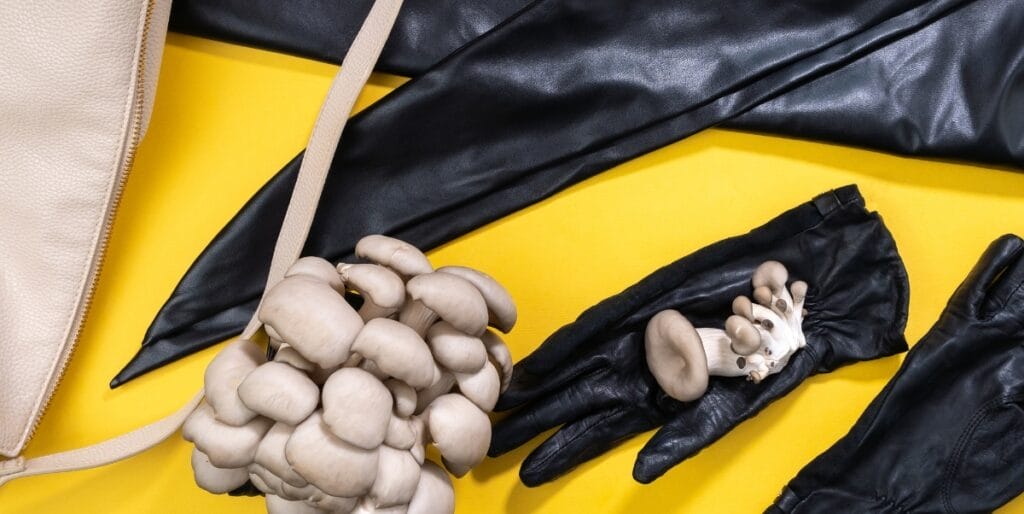Login Account
To view the article please login or create an account
Why Are We Still Buying Leather Jackets? – Dec. 2024

“It’s About F*cking Time !”
This bold slogan from Stella McCartney’s recent campaign challenges us to confront a pressing question: Why do we still buy animal-based products after years of alternatives and growing awareness?
The fashion industry causes the cruel deaths of over 5 billion animals annually (Four Paws, 2023). With innovative options like apple leather, mushroom-based leather, and other bio-based sustainable materials now available, why do consumers still choose products involving animal suffering?
Should cultural perceptions excuse animal suffering?
Fur, leather, and wool have long been staples of fashion. Yet, their production often involves significant cruelty. Leather, for instance, is not merely a by-product of the meat industry but a separate industry where animals are specifically slaughtered for their skins. As consumers, do we truly grasp the ethical implications of this industry? Or do we dismiss this suffering as an acceptable trade-off for style and convenience?
Our perceptions of animal products are deeply rooted in culture. In some regions, such as China, there is less emphasis on animal welfare due to cultural norms, limited legislation, and economic priorities. Traditional Chinese medicine, for example, often uses animal parts. Moreover, from an economic point of view, moving away from animal farming poses significant challenges, particularly for communities that rely heavily on this industry for their livelihoods. At the same time, animal-based products often symbolize identity, luxury, and status. Social influencers also play a key role, especially for younger audiences by perpetuating the idea that leather goods are trendy and desirable. What teenager doesn’t feel pressured to follow the latest fashion trends?
Are vegan alternatives truly sustainable?
Cruelty-free materials like Piñatex and bio-based leather offer promising solutions with lower environmental impact. For example, Elevate, a bio-based leather made from grain proteins and plant-based elements, mimics the structure and texture of animal leather. These innovations are revolutionising the fashion industry, yet vegan leather remains a niche market. Why?
Plant-based leathers often combine natural fibres, such as pineapple leaves, apple peels, or mushroom mycelium, with petroleum-based synthetics to improve durability and water resistance. While effective, this reliance on synthetic components raises concerns about fossil fuel dependency, plastic pollution, and recyclability at the end of the product’s life. Fully petroleum-free plant-based leathers are rare and, when available, less durable, making them less commercially viable.
Additionally, the market for leather alternatives is still dominated by polyurethane (PU) and polyvinyl chloride (PVC) leather. These materials are affordable and scalable but come with significant environmental drawbacks, such as microplastic pollution. To complicate matters, inconsistencies in production processes across countries lead to variations in quality and sustainability claims. Even the label “vegan” has faced criticism for greenwashing. Not all vegan products reduce environmental impact.
Balancing durability, scalability, affordability, and true sustainability remains a challenge. Greater transparency in material sourcing and manufacturing will help consumers make informed choices and ensure that vegan alternatives meet their ethical and ecological promises.
So, what can we do?
Should we stop buying animal-based products entirely and switch to alternatives? Or is giving second-hand leather jackets a second life a more sustainable and ethical option?
Personally, I own a second-hand leather jacket, but lately, I’ve been questioning whether wearing it aligns with my values. Could it still be seen as endorsing animal-based products, even unintentionally? It’s a dilemma that echoes Stella McCartney’s campaign urging us to rethink our choices.
What about you? What compromises are you willing to make for truly ethical fashion? How do you navigate the fine line between sustainability and personal principles?
Other Posts


Interested in writing for the community?
Your contributions will nourish our collective intelligence and ignite constructive debates.
Write with us!
